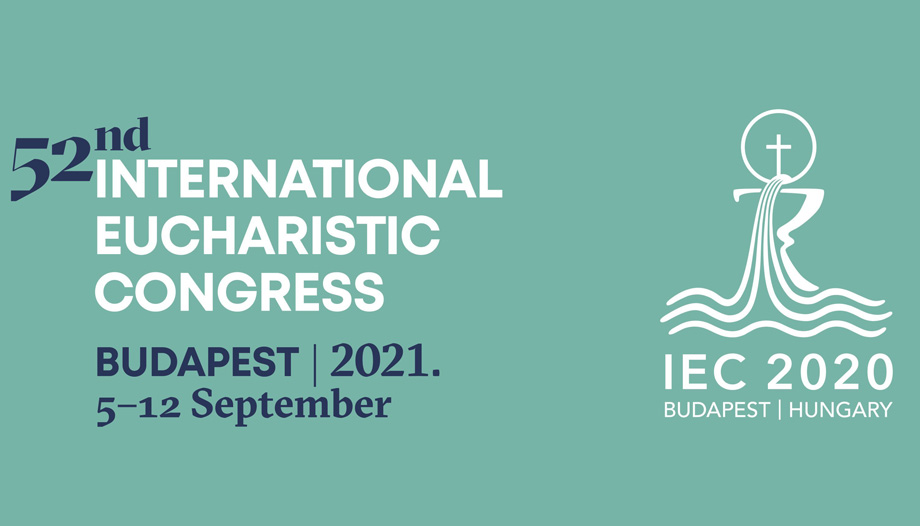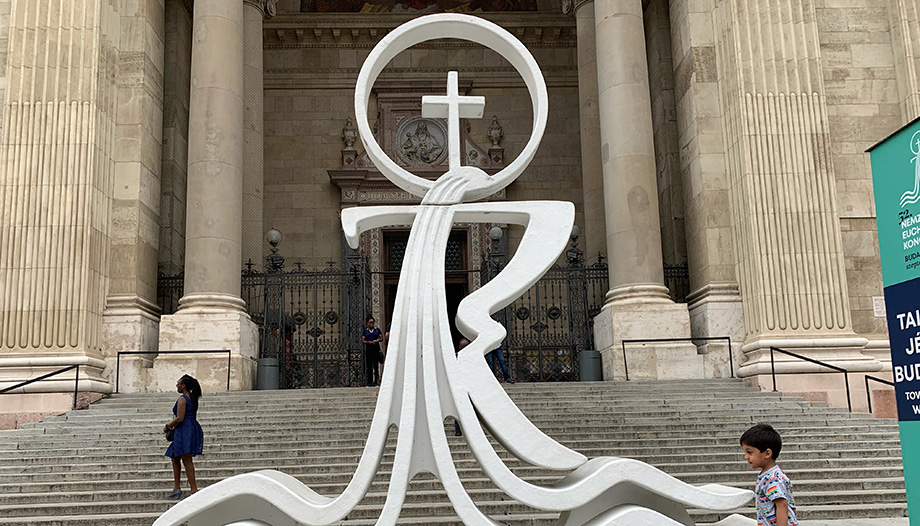You can read the original article in German by clicking here.
The 52nd International Eucharistic Congress being held in the Hungarian capital, Budapest, began on Sunday with the first communion of 1,200 children. But the highlight will be the closing Mass with Pope Francis in Budapest's magnificent Heroes' Square next Sunday.
It will be conceived as a "statio orbis", that is, it refers to the early Christian tradition of the "statio urbis", when the bishop of a city celebrated a single Mass in which all the faithful participated. In Sunday's act, this unity of the faithful with the Holy Father will be extended to the whole Church.
Pope Francis will stay a few hours in Budapest before continuing on to Slovakia for a multi-day visit later that day.
The Catholic Church in Hungary has been looking forward to the Congress, which should have been held in September 2020, but was postponed due to the Coronavirus pandemic. It does not happen every day to be able to celebrate a feast of faith of such magnitude in a rather secularized country like Hungary, a feast that also attracts the attention of non-Catholics and non-Christians. When even a Pope comes to visit, the attention is even more assured.
For this reason, the Catholic Bishops' Conference has made every effort to prevent the Eucharistic Congress from being conditioned by political issues, but this objective has not been fully achieved in the preparatory phase. At the beginning of June, the U.S. Catholic portal National Catholic Register reported that the Pope did not want to meet with representatives of the Hungarian state, in particular with Prime Minister Viktor Orbán.
The Polish media added shortly afterwards: the reason was Orbán's restrictive migration policy, which is not at all in line with the Pope. That would also be the reason why Francis, according to speculation, only wants to spend a few hours in Hungary.

Previous disagreements
This news immediately provoked fierce and outspoken criticism of the Pope from some commentators close to the Hungarian ruling party Fidesz. In the end, the Bishops' Conference itself had to intervene and publicly emphasize that "of course" a meeting of the Pope with the highest representatives of the Hungarian State was planned. The meeting of the Holy Father with Orbán and President János Áder will take place shortly before Holy Mass at the Museum of Fine Arts.
The ruling party FideszOrbán has ruled the country with a two-thirds majority almost uninterruptedly since 2010. Personalities and companies close to the party now dominate wide areas of public life, the economy, culture and the media. It is a right-wing nationalist party, with a markedly conservative ideology, and presents itself as very respectful of the Church.
Orbán, who belongs to the Reformed (Calvinist) Church, enjoys attending Catholic events and celebrations, and publicly emphasizes his Christian faith. He recently attended a meeting of Catholic parliamentarians in Rome. But in the matter of migratory policy, strong criticism of the Pope's line has been repeated from Hungary, although not by the government itself, but by personalities close to him.
The organizers hope that media speculation about relations between the Vatican and the Hungarian state will not obscure the faith message of the Congress and the Pope's visit.
Much has been done to achieve this: twelve personalities from culture and science have given testimony of their faith as "heralds" during the preparations. Before the Pope's Mass begins in Budapest's Heroes' Square, there will be a two-hour concert in which well-known musicians will bear witness to their fidelity to Jesus Christ.
The artistic missionary cross, originally carved for Mission City in 2007, was provided with a relic of the cross and numerous relics of Hungarian saints and blessed, and carried throughout the country.
The Congress hymn has a special significance. It brings to mind that a World Eucharistic Congress has already been held in Budapest, namely in 1938, and it has been decided to reuse the hymn of that time, albeit with a modern orchestration.
In May 1938 there was no visit of a sitting Pope to the Hungarian capital, but Cardinal Secretary of State Eugenio Pacelli - later Pope Pius XII - delivered the opening address. In his speech, he called Hungary a "bulwark" against communism and National Socialism.
A year and a half before the outbreak of World War II, this important ecclesiastical event was clearly overshadowed by political conflicts: Adolf Hitler had authoritatively introduced a special visa for all Germans who wanted to travel to Hungary during the days of the Congress, in order to prevent German Catholics from participating in the celebration.
Moreover, as the "Anschluss" (annexation) of Austria to Germany took place only two months before the start of the Congress, the demand also applied to Austrian Catholics, of whom a large number were expected to participate.
In the end, however, 50,000 international visitors came to Budapest, and it is estimated that several hundred thousand people participated in the events. More than 75,000 faithful have already registered for the current papal mass, and numerous other groups are expected.








